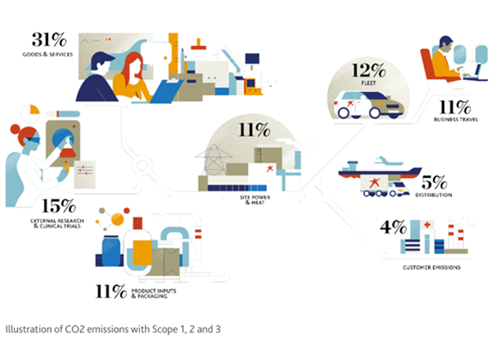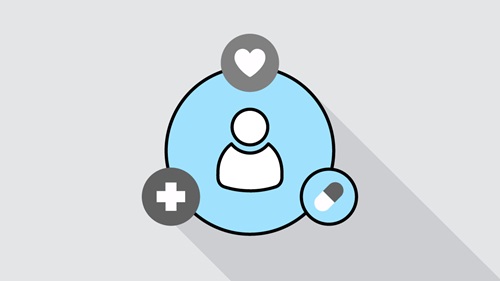Diversity, Equity and Inclusion:

Being Diverse, Equitable and Inclusive
"We win together. Lundbeck is a place where you grow and thrive – personally and professionally. We embrace the uniqueness of individuals, knowing we are stronger when every brain is in the game." Deborah Dunsire, CEO.

Clinical Trial Diversity
Building an inclusive clinical trials infrastructure, one that reflects the full diversity of the intended treatment population, is an important step toward combatting health inequities and racial disparities in brain health.
To guide our efforts, the Lundbeck Diversity Steering Team will assess and drive efforts in this area and monitor our progress against the Lundbeck Clinical Trial Diversity Principles:
• Develop & Execute a Clear Strategy to Achieve Diversity in Our Trials Globally
• Collaborate with Patient Advocacy Groups Choosing to Make Diversity a Priority
• Implement Integrated Oversight Approach to Inform, Analyze and Act

Better Awareness of Biases
Environmental Sustainability:
Delivering on our Climate Commitment
For more than a decade, we have consistently reported annual reductions in both energy consumption and CO2 emissions.
Today, we use 35% less energy and emit 68% less CO2 than in 2006.

Our Climate Action Ambitions
We have achieved excellent results within our direct emissions (Scope 1) and purchase of electricity and heat (Scope 2). However, around 80% of our total CO₂ emissions are derived from our value chain (Scope 3). This includes where the goods and services we need are produced, the distribution of our products to patients, when our employees travel, and how our waste is treated.
Our current CO₂ target is to:
• Have net zero emissions no later than 2050
• Further reduce carbon emissions from production and fleet drastically by almost two-thirds over the next 15 years
• Work with our suppliers and customers to reduce our carbon footprint outside our premises by nearly a fifth over the next 15 years.

Our Climate Action Progress
Historically, we have demonstrated our commitment to cut carbon emissions. A main part of the reduction comes from optimization of existing buildings, plants and installations, as well as investments in new low-energy machines and plants. Lundbeck has also made a shift from conventional fuel to bio-fuel. The carbon footprint we leave outside our fence is approximately nine times as high as inside the fence. With our new climate target, we take responsibility for by addressing carbon emissions across our entire value chain – from operations and products to raw material production, clinical trials, distribution and end-of-life.
In parallel, we are accelerating the transition to renewable energy in our manufacturing and headquarter facilities.

Recirculating Chemical Waste
Over the years, we have refined the skills and technical capabilities of our chemical production to increase recycling of organic compounds and reduce hazardous waste. We set targets each year to improve and in 2021, we are proud to report that we outperformed the target to recover 60% and achieved 65%.
Access & Affordability:
Access to Brain Health
Building on more than 70 years' experience in the research, development and manufacture of medicines for treatment of brain diseases, Lundbeck is consolidating its corporate actions into an Access to Brain Health Strategy. It is inspired by four right to health principles from WHO: Availability, Accessibility, Acceptability and Good Quality.

Mental Health and Suicide Prevention
In 2019, to drive our global engagement and educational efforts on suicide prevention, we published the booklet “Mental Health and Suicide Prevention - Lundbeck's Recommendations and Commitments.” Drafted in consultation with experts in the field, it aims to raise awareness and support education in suicide prevention.

Bold Initiative Aims to Identify Communities in Need of Greater Mental Health Supports Amid the Pandemic
There is a critical need to address the mental health crisis exacerbated by the pandemic.
With support from Lundbeck, Mental Health America analyzed data collected from millions of users who visited MHA Screening in 2020 and early 2021. The data represents the largest dataset collected from a help-seeking population experiencing mental health conditions during COVID-19. And it is the basis for a first-of-its-kind dashboard that spotlights mental health “hotspots” across the country.
